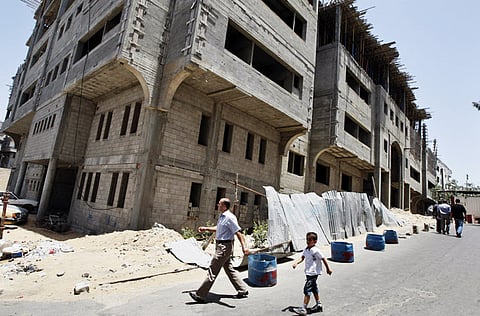Will Israel be able to probe itself?
Investigating committee is not independent and cannot question soldiers

The chorus of international condemnation that followed the Freedom flotilla tragedy seem to have elicited an unusual sensitivity to international public opinion on the part of the Israeli government. In the past, various Israeli governments acted with total disregard for what the international community thought of their many assaults on the Palestinians, and invariably remained unmoved by criticisms, as if they were above the law.
This is nowhere more evident than in the decision of the Israeli government to shift the focus of their illegal and inhumane blockade of the people of Gaza from collective punishment to tightly controlled imprisonment. This was done not only in response to international condemnation but also as a result of the failure of the blockade to weaken Hamas' hold on power in Gaza. This admission of failure implies among other things that in any strategic calculation of the elements having a bearing on an eventual peace settlement with the Palestinians it would be hard to marginalise or ignore Hamas.
To be sure, the decision to ease the blockade is more form than substance. The blockade has devastated Gaza's economy and inflicted untold suffering on its 1.5 civilian population, 80 per cent of whom reportedly have come to rely on food aid.
After Israel completed the so-called Gaza disengagement plan in 2005, it declared the end of the military occupation of Gaza and claimed to have relinquished responsibility for the safety and well-being of the population of Gaza. In reality, the Israelis withdrew their forces from Gaza but continued to control the border posts into Gaza, its population registry, its airspace and its land and sea borders. In short, they continued the occupation by other means.
Poor record
Another apparent sensitivity to international public opinion took the form of agreeing to set up a panel to investigate how the aid flotilla tragedy came to happen.
The Israeli government was so concerned that Defence Minister Ehud Barak pleaded with UN Secretary-General Ban Ki-moon to shelve plans for an independent UN investigation of the tragedy. "We are moving ahead with our independent investigation," he said, "which we believe is clearly independent, reliable, credible and should be allowed to work."
But can Israel investigate itself? Conflict of interest and a poor historical record of investigating itself suggest that such an investigation would be largely moved by a concern to placate outraged international public opinion and obviate the need for an international commission of inquiry.
The mandate of the Israeli committee which the Israeli government established suggests that it is neither independent nor credible.
The Turkel Committee is entrusted with the task of examining whether the way in which the blockade was enforced was compatible with international law, but its members include no recognised experts on international law. The committee is not a state commission of inquiry with full investigative powers; and as such it lacks independence and remains dependent on the goodwill of Prime Minister Benjamin Netanyahu and other Israeli officials.
The independence of the committee is further eroded by the government's insistence that the committee accept the Israeli military version of events and by its demand that the committee refrain from questioning Israeli soldiers or compelling them to provide evidence.
"Given the Israel military's poor record of investigating itself in past cases of possible wrongful death," Human Rights Watch stated, "it is hard to have confidence that the panel's dependence on the Israeli military will lead to the truth."
As to the international composition of the committee, it consists of two "observers" who are just that: observers; they have no right to vote on the committee's findings; and may not see evidence which the chairman determines may harm Israel's national security. Further the choice of at least one of the two observers, David Trimble, who helped negotiate an end to the conflict in Northern Ireland in the late 1990s, casts doubt on the alleged independence of the committee. Only last month Trimble was instrumental in establishing the "friends of Israel" association.
The continuing commitment to the Zionist project of dispossessing the Palestinians cannot be kept secret. Only last week, the [occupied] Jerusalem municipal planning committee approved plans to demolish 22 Palestinian homes in occcupied East Jerusalem. US State Department spokesman P.J. Crowley said Israel's decision "undermines trust fundamental to progress in the proximity talks between Israel and the Palestinian Authority."
US officials gave Israel the usual slap on the wrist and asked Netanyahu for an explanation. The Palestinian Authority stated that the plan is proof that the Israeli government wants to torpedo the indirect peace talks with the Palestinians and called on the international community to intervene. But on such a fundamental tenet of Zionist ideology, the Israeli government is likely to remain unmoved by international criticism.
Adel Safty is Distinguished Professor Adjunct at the Siberian Academy of Public Administration, Russia. His new book, Might Over Right, is endorsed by Noam Chomsky, and published in England by Garnet, 2009.


